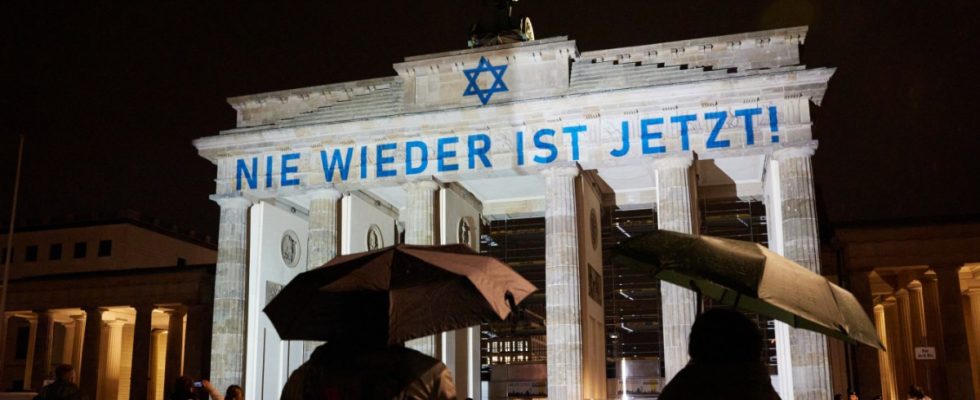The Basic Law is facing an important anniversary. The first wishes have already arrived in large numbers, although May 23rd is still a while away. The primary aim is to make the German constitution and the associated state organs fit for the challenges, or rather hostilities, of the present and the future; Keywords would be AfD and Federal Constitutional Court. Samuel Salzborn now points out in a powerful essay that democracy is not only being attacked by right-wing populists and extremists. He is concerned with “anti-Semitism and the threat to the political order.” His contribution should be read as an urgent wish for more defensive democracy.
The anti-Semitism researcher, political scientist and contact person for the State of Berlin for anti-Semitism has already dealt with the complex problem in many works. The booklet is now an extreme condensation, which is nevertheless strongly influenced by the joy of academic formulation, including a large portion of political theory.
Aggressive anti-modern worldview
Anyone who sticks with it will quickly understand why anti-Semitism, as an aggressive anti-modern worldview “to which the threat of annihilation is always part”, aims to destroy democracy and how right-wing extremists, left-wing anti-imperialists and radical Islamists pull together despite all other ideological discord to fight against an alleged global Jewish conspiracy. Salzborn’s recipes also focus on education and prevention, but ultimately on “concepts of political, social and (criminal) legal combat”, such as the inclusion of anti-anti-Semitism clauses in state constitutions, bans on gatherings and an adjustment of criminal law.
Samuel Salzborn: Defenseless democracy? Anti-Semitism and the threat to the political order. Verlag Hentrich & Hentrich, Leipzig 2024. 144 pages, 17 euros.
(Photo: Hentrich & Hentrich)
And why not with more pedagogy? “A peaceful system like democracy can only be and remain peaceful if it defends itself against its enemies with all options for legitimized violence, because they ontologically reject the peaceful and discursive handling of conflicts, i.e. do not recognize the modus operandi of the democratic.” The state recognized this very late, but at least finally, but there is still often a lack of political will to make progress here more effectively. Salzborn’s conclusion: “The professionalization of defensive democracy has only just begun.”
On top of that on the bookshelf marking 75 years of the Basic Law is the fact that “the fight against anti-Semitism is, or rather must be, an elementary part of the Federal German self-image as a defensive democracy.”

